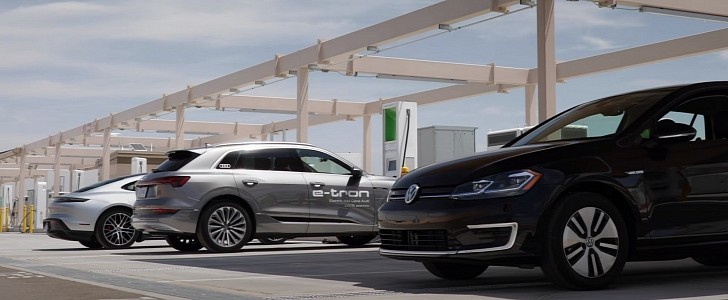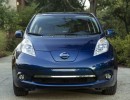One of the biggest challenges for electric cars is the value of their battery packs. If anything goes wrong with them, the entire vehicle may become junkyard material in the blink of an eye. However, in multiple discussions held at the 2021 Auto Finance Summit, specialists concluded that battery pack degradation is not an issue in depreciation.
The explanation for that is simple. According to the specialists heard by Automotive News, modern battery packs are managing to retain their capacities much better than they did in the past, with the first modern attempts to have electric cars.
Although none of the specialists mentioned the reason for modern EVs to be doing so well when it comes to battery pack degradation, that has to do with using liquid cooling instead of air cooling, especially with the need for fast charging. Cars with air-cooled battery packs lose much more capacity than those with liquid-cooled components.
Another factor that the specialists determined to be important is the original range of the vehicle. In other words, cars that offered 200 miles of range when new depreciate much more than those above 300 miles. That has to do with how much people expect to drive them.
According to Cox Automotive, EV buyers expect to be able to drive at least 217 miles on a single charge. Any vehicle that offers less than that will face higher depreciation, whether with a new or a used car. Currently, the average EV range is 257 miles. Those that can provide more than that will present similar depreciation values as those experienced by combustion-engined vehicles.
While this seems to be good news for electric cars, the truth is that battery pack problems must still be on the radar for used car buyers. Vehicles that have been involved with serious battery pack recalls, such as the Chevy Bolt EV and the Hyundai Kona Electric, may have suffered reputation damages that will affect their depreciation values, for example. If they lose more capacity than other battery packs, that will also reflect on the price.
Although none of the specialists mentioned the reason for modern EVs to be doing so well when it comes to battery pack degradation, that has to do with using liquid cooling instead of air cooling, especially with the need for fast charging. Cars with air-cooled battery packs lose much more capacity than those with liquid-cooled components.
Another factor that the specialists determined to be important is the original range of the vehicle. In other words, cars that offered 200 miles of range when new depreciate much more than those above 300 miles. That has to do with how much people expect to drive them.
According to Cox Automotive, EV buyers expect to be able to drive at least 217 miles on a single charge. Any vehicle that offers less than that will face higher depreciation, whether with a new or a used car. Currently, the average EV range is 257 miles. Those that can provide more than that will present similar depreciation values as those experienced by combustion-engined vehicles.
While this seems to be good news for electric cars, the truth is that battery pack problems must still be on the radar for used car buyers. Vehicles that have been involved with serious battery pack recalls, such as the Chevy Bolt EV and the Hyundai Kona Electric, may have suffered reputation damages that will affect their depreciation values, for example. If they lose more capacity than other battery packs, that will also reflect on the price.



















































